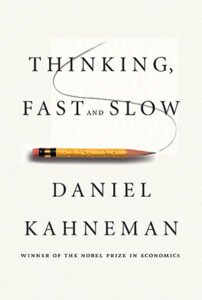|
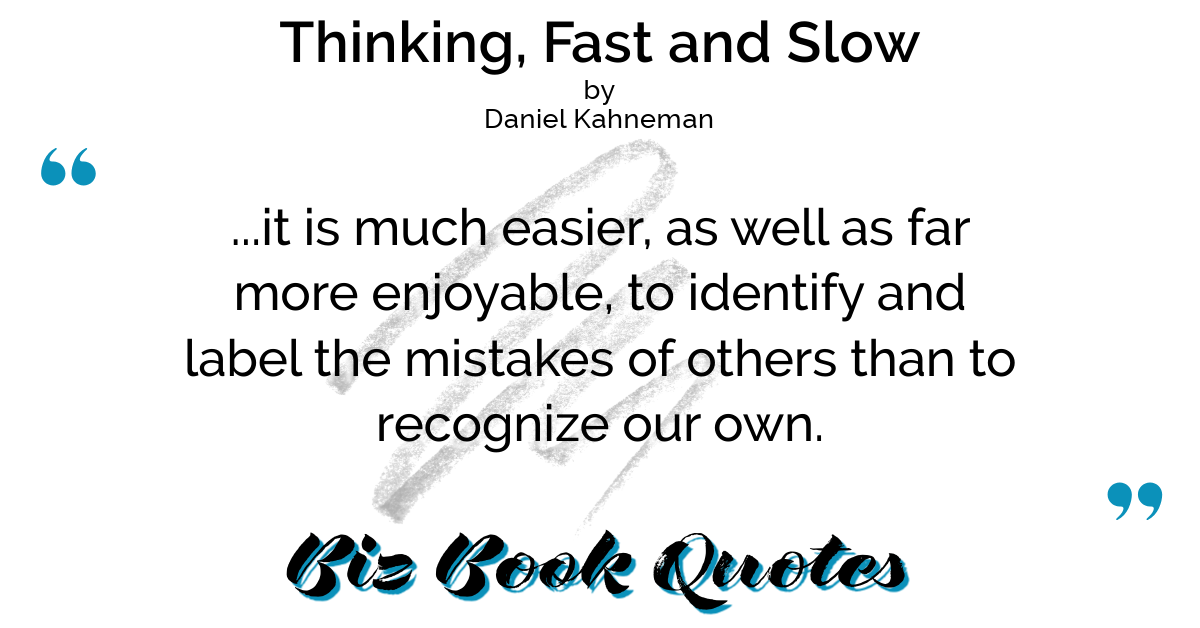
|
Thinking, Fast and Slow:
…it is much easier, as well as far more enjoyable, to identify and label the mistakes of others than to recognize our own.
|
003 |
|
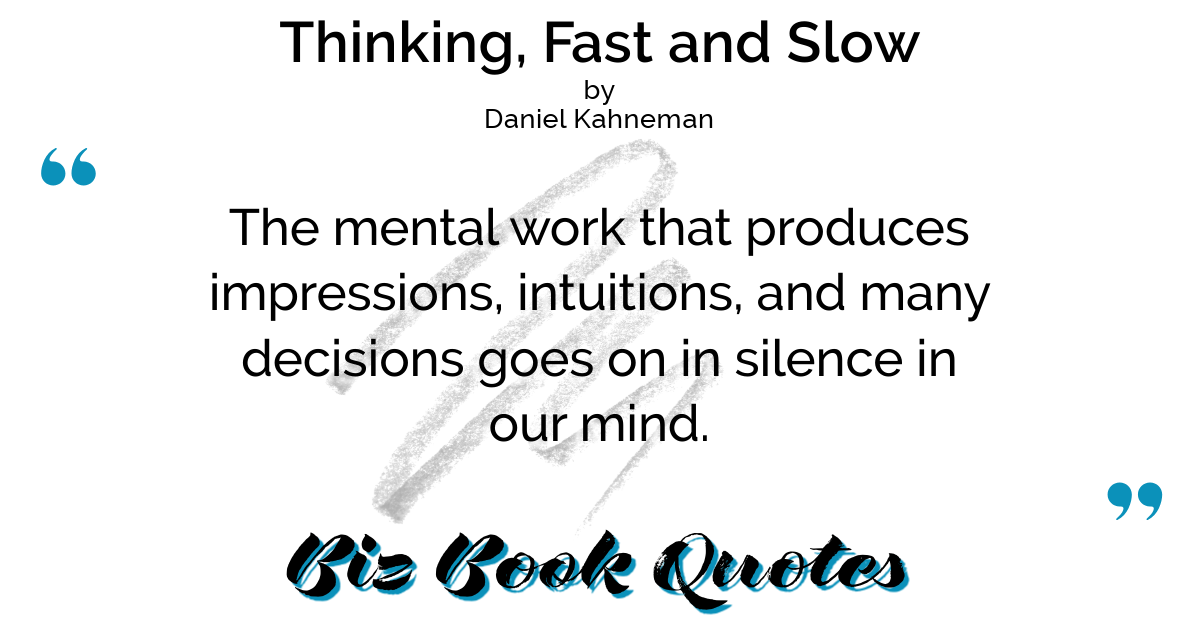
|
Thinking, Fast and Slow:
The mental work that produces impressions, intuitions, and many decisions goes on in silence in our mind.
|
004 |
|
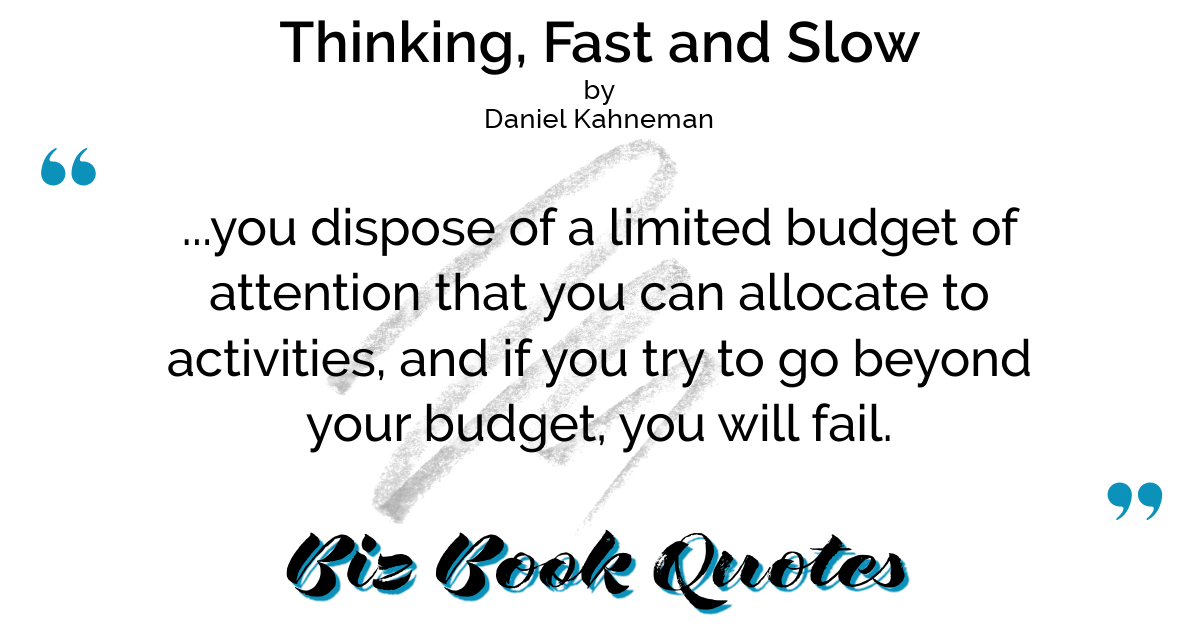
|
Thinking, Fast and Slow:
…you dispose of a limited budget of attention that you can allocate to activities, and if you try to go beyond your budget, you will fail.
|
023 |
|

|
Thinking, Fast and Slow:
It is the mark of effortful activities that they interfere with each other, which is why it is difficult or impossible to conduct several at once.
|
023 |
|
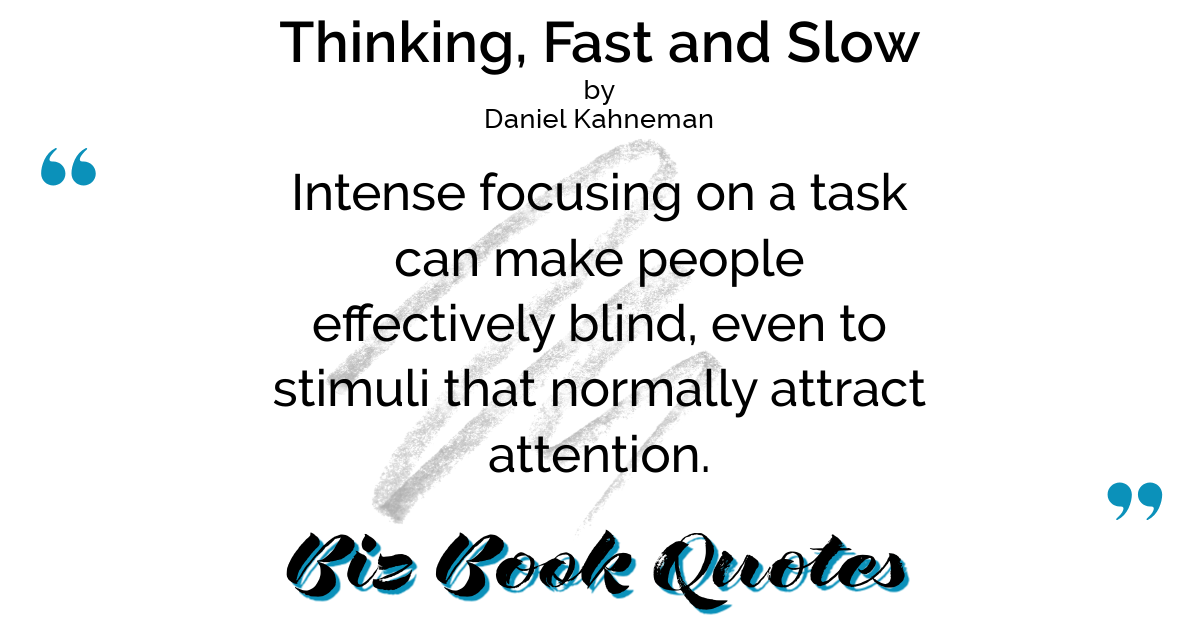
|
Thinking, Fast and Slow:
Intense focusing on a task can make people effectively blind, even to stimuli that normally attract attention.
|
023 |
|
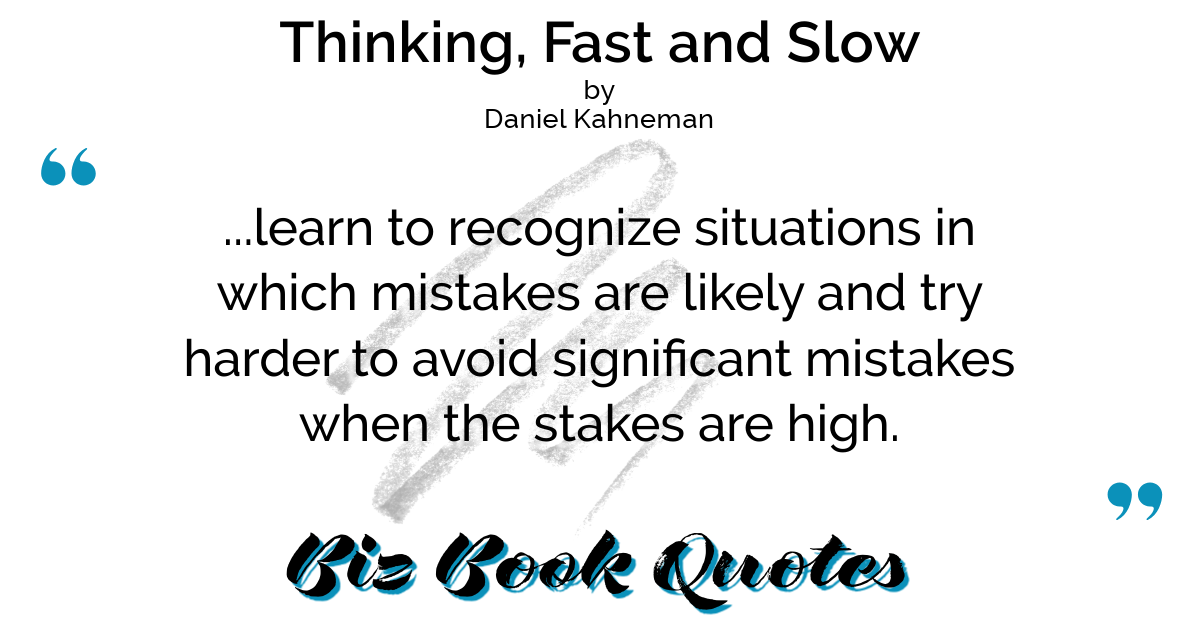
|
Thinking, Fast and Slow:
…learn to recognize situations in which mistakes are likely and try harder to avoid significant mistakes when the stakes are high.
|
028 |
|
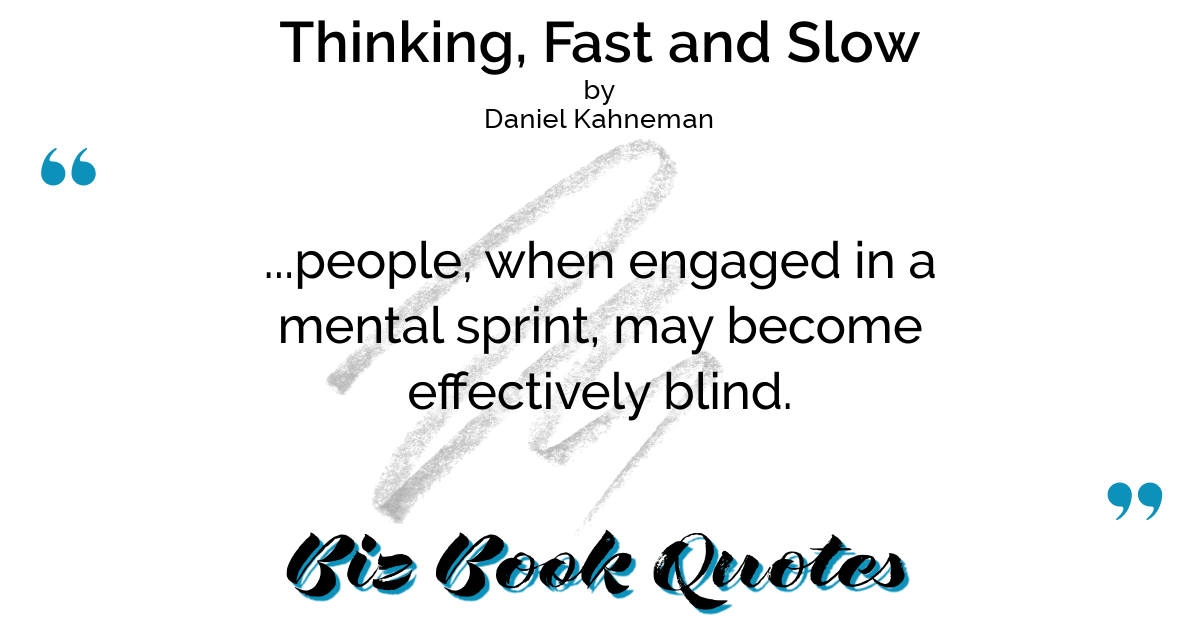
|
Thinking, Fast and Slow:
…people, when engaged in a mental sprint, may become effectively blind.
|
034 |
|

|
Thinking, Fast and Slow:
As you become more skilled in a task, its demand for energy diminishes.
|
035 |
|
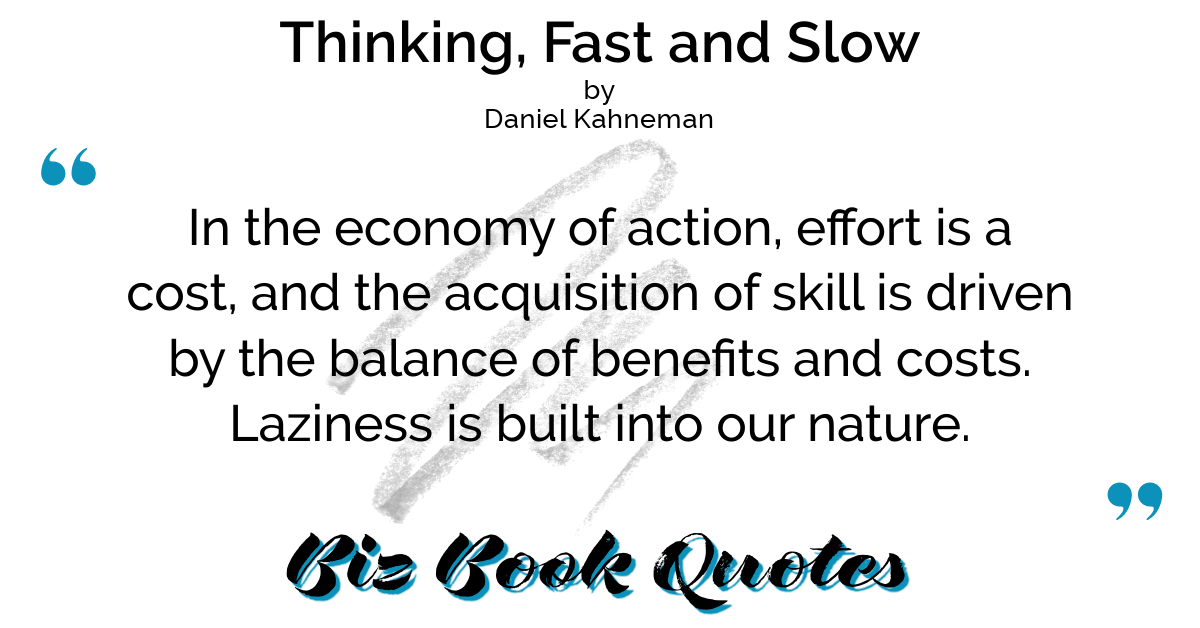
|
Thinking, Fast and Slow:
In the economy of action, effort is a cost, and the acquisition of skill is driven by the balance of benefits and costs. Laziness is built into our nature.
|
035 |
|
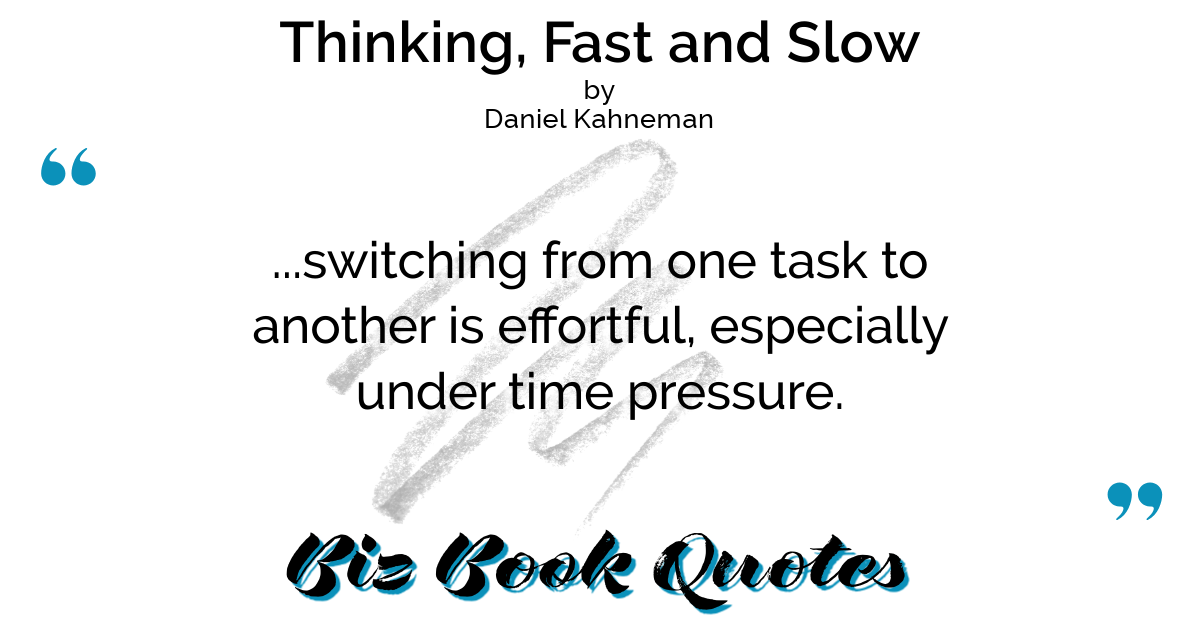
|
Thinking, Fast and Slow:
…switching from one task to another is effortful, especially under time pressure.
|
037 |
